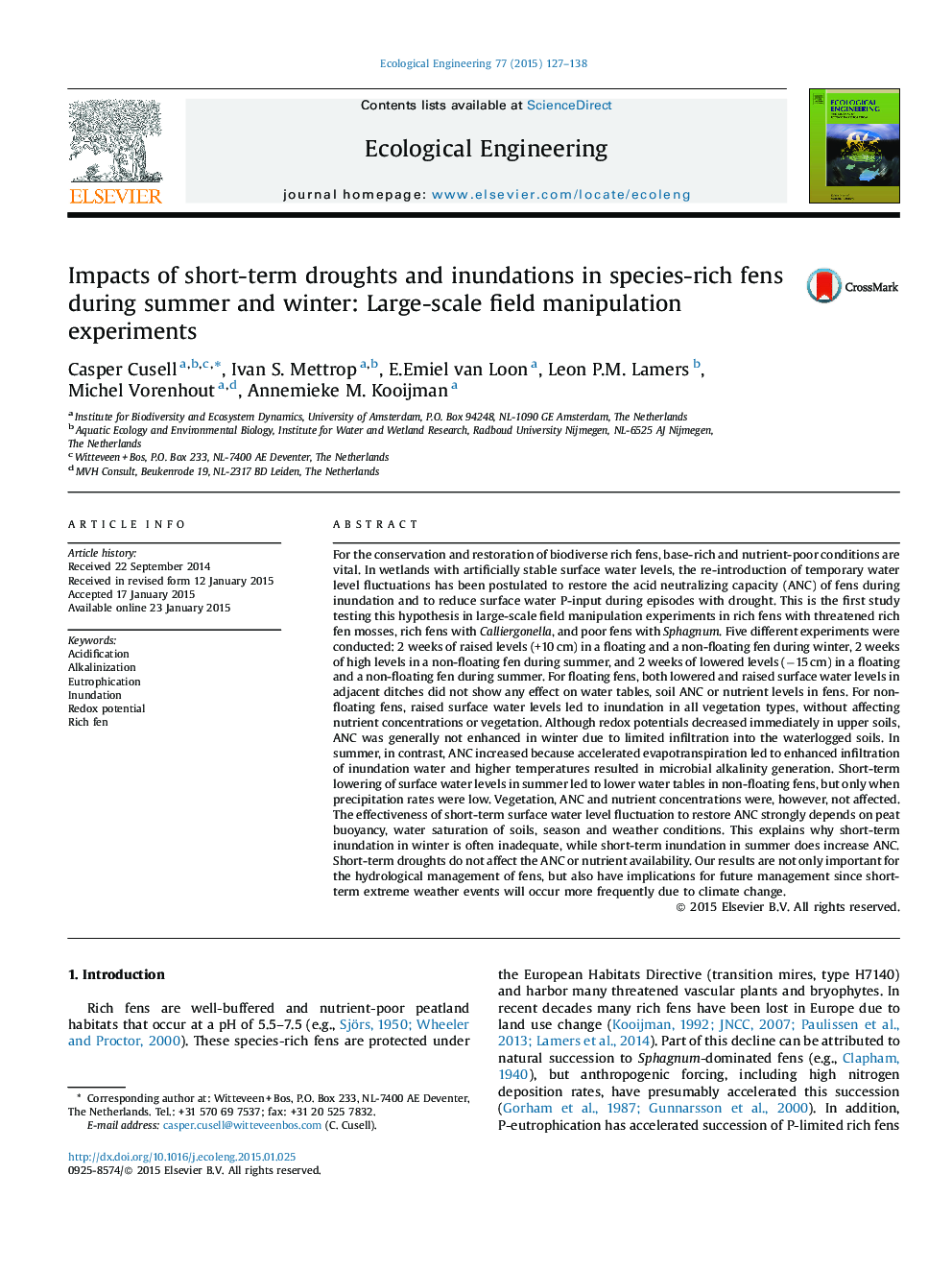| Article ID | Journal | Published Year | Pages | File Type |
|---|---|---|---|---|
| 4389257 | Ecological Engineering | 2015 | 12 Pages |
For the conservation and restoration of biodiverse rich fens, base-rich and nutrient-poor conditions are vital. In wetlands with artificially stable surface water levels, the re-introduction of temporary water level fluctuations has been postulated to restore the acid neutralizing capacity (ANC) of fens during inundation and to reduce surface water P-input during episodes with drought. This is the first study testing this hypothesis in large-scale field manipulation experiments in rich fens with threatened rich fen mosses, rich fens with Calliergonella, and poor fens with Sphagnum. Five different experiments were conducted: 2 weeks of raised levels (+10 cm) in a floating and a non-floating fen during winter, 2 weeks of high levels in a non-floating fen during summer, and 2 weeks of lowered levels (−15 cm) in a floating and a non-floating fen during summer. For floating fens, both lowered and raised surface water levels in adjacent ditches did not show any effect on water tables, soil ANC or nutrient levels in fens. For non-floating fens, raised surface water levels led to inundation in all vegetation types, without affecting nutrient concentrations or vegetation. Although redox potentials decreased immediately in upper soils, ANC was generally not enhanced in winter due to limited infiltration into the waterlogged soils. In summer, in contrast, ANC increased because accelerated evapotranspiration led to enhanced infiltration of inundation water and higher temperatures resulted in microbial alkalinity generation. Short-term lowering of surface water levels in summer led to lower water tables in non-floating fens, but only when precipitation rates were low. Vegetation, ANC and nutrient concentrations were, however, not affected. The effectiveness of short-term surface water level fluctuation to restore ANC strongly depends on peat buoyancy, water saturation of soils, season and weather conditions. This explains why short-term inundation in winter is often inadequate, while short-term inundation in summer does increase ANC. Short-term droughts do not affect the ANC or nutrient availability. Our results are not only important for the hydrological management of fens, but also have implications for future management since short-term extreme weather events will occur more frequently due to climate change.
